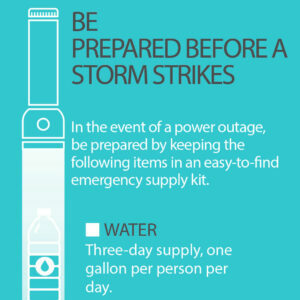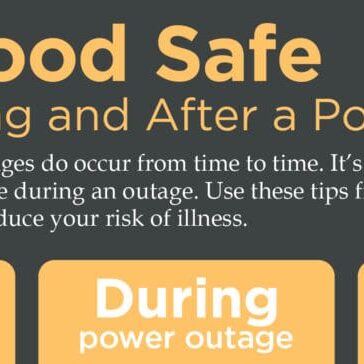Resize text-+=

Experience savings on restaurants, golf, shopping, travel, family fun, automotive, movies, insurance… everything you can imagine is here. Co-op Connections has the best deals all in one place.
Emergency Kit Preparation
The following is a suggested list of supplies to assemble for your Emergency/Disaster Supply Kit:
Videos: Prepping for Storms & Outages
PDFs: Emergency Supply Checklist & Food Safety

Download Emergency Supply Checklist [PDF]

Download Power Outage Food Safety [PDF]

